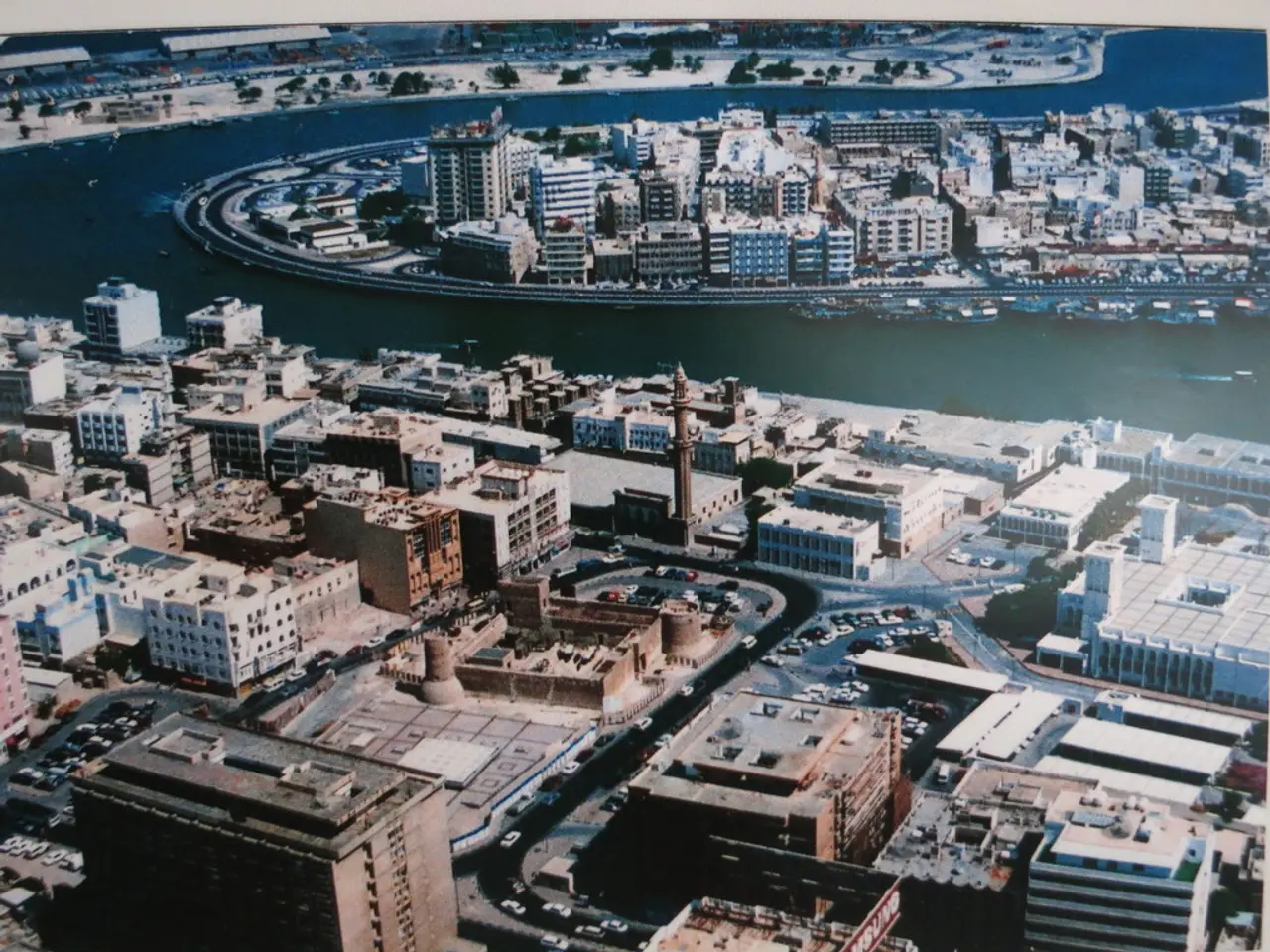The Middle East may be overlooking a potential chance for advanced artificial intelligence in the realm of clean energy.
In a significant shift towards a more technologically advanced future, Middle Eastern countries are making substantial investments in artificial intelligence (AI) and renewable energy. The region, traditionally known for its oil and gas industries, is now positioning itself as a potential third AI powerhouse, distinct from the US and China.
The United Arab Emirates (UAE) has taken the lead in this transformation. Sultan Ahmed Al Jaber, the head of Abu Dhabi National Oil Company (ADNOC), expressed excitement about the role of natural gas in powering data centers, as energy realism takes center stage. The UAE has signed agreements worth a staggering $200 billion with the US, including one to establish a "US-UAE AI Acceleration Partnership" and a five GW data center campus.
The UAE's commitment to AI and renewable energy extends beyond its borders. During a visit to the US in March, the UAE pledged $1.4 trillion of investment in US infrastructure, including AI.
Saudi Arabia, another major player in the region, is also making significant strides. The Kingdom has signed a $600 billion deal with the US, which includes four AI-related agreements. Notably, Saudi Arabian data center company, DataVolt, is planning to construct hyperscale AI campuses in Saudi Arabia, the US, and global markets, with a focus on renewable energy and green hydrogen to power these data centers.
However, the region's investment in clean energy for AI technology and infrastructure remains lower than in most developed regions globally. Middle Eastern countries have historically relied heavily on their fossil fuel resources, which has hindered their transition to renewable energy.
Qatar, for instance, has invested only marginally in renewable energy for AI technology and infrastructure, despite its abundant renewable resources. However, Qatar has committed $2.5 billion to AI projects as part of its Digital Agenda 2030 and has signed a strategic partnership with U.S.-based Scale AI to explore AI integration into public services.
The Middle Eastern countries are not only investing in AI but also aiming to establish their own AI industries. G42, a dominant tech holding company in the UAE focused on AI, received an investment of $1.5 billion from Microsoft and will use Microsoft's Azure cloud services for its AI services.
In addition, MGX, Abu Dhabi's technology investment fund, has partnered with BlackRock, Global Infrastructure Partners, Microsoft, and the Kuwait Investment Authority to form the AI Infrastructure Partnership, with the goal of mobilizing $30 billion of equity capital.
The region's ambition does not stop at AI. Project Transcendence, a $100 billion initiative in Saudi Arabia, is devoted to creating a tech hub around AI, analytics, and advanced tech. HUMAIN, an AI startup backed by the PIF, plans to build up to 1.9 GW of data center capacity by 2030 and has signed deals worth $23 billion with global tech suppliers.
However, the path to a fully renewable energy-powered AI infrastructure is not without challenges. Only five of the countries in the region have set net-zero targets. The Qatar Investment Authority announced plans to invest $500 billion in US data centers, AI, and health care technology over 10 years, but it remains to be seen how much of this investment will be dedicated to renewable energy.
EDGNEX Data Centers, a Dubai-based developer, announced a $20 billion expansion into the US market, with an intent to build two GW of data centers over the next four years. This expansion could potentially help the region reduce its dependence on fossil fuels and move towards a more sustainable energy future.
The escalating tensions in the Middle East, which potentially threaten the region's stability, could pose a challenge to these ambitious plans. However, the region's leaders remain undeterred, with a clear vision of a technologically advanced and sustainable future.
Read also:
- visionary women of WearCheck spearheading technological advancements and catalyzing transformations
- A continuous command instructing an entity to halts all actions, repeated numerous times.
- Oxidative Stress in Sperm Abnormalities: Impact of Reactive Oxygen Species (ROS) on Sperm Harm
- Genetically manipulated rabbits sprout ominous black horns on their heads








